How useful are masks in preventing new coronavirus infections?

With the new coronavirus infectious disease (COVID-19) epidemic, the purchase of masks has become a social issue, and the Japanese government has distributed two masks per household, so the focus is on masks. Vox, an overseas news media, explains 'the real benefits of masks'.
The image below is a clip of a video captured by a German research team using a special imaging technique that uses a mirror to capture the flow of air.
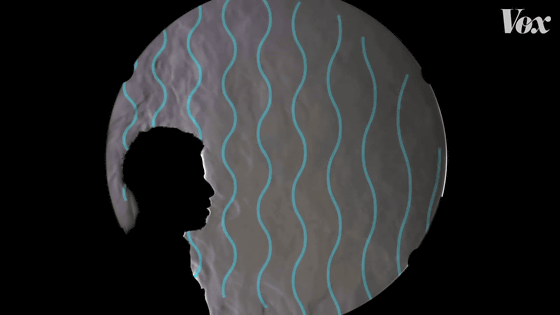
The flow of air shows that when a person breathes, particles are exhaled slightly to the front.
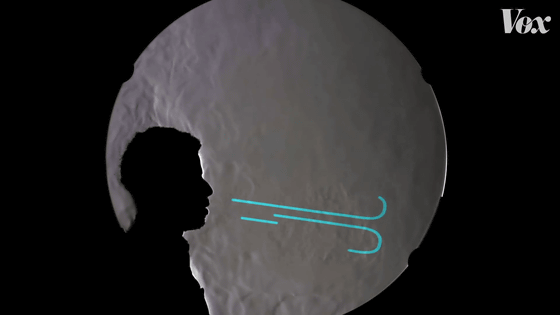
If you cough, the particles will be far from your mouth and will be released quickly.
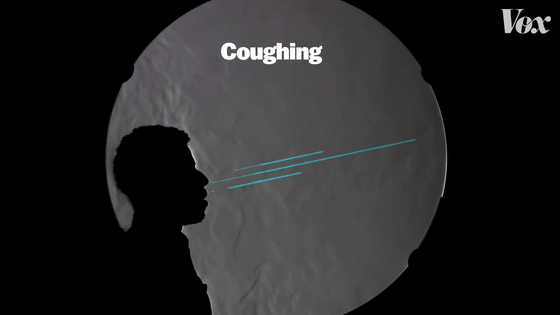
It looks like this when you cough on the back of your hand.
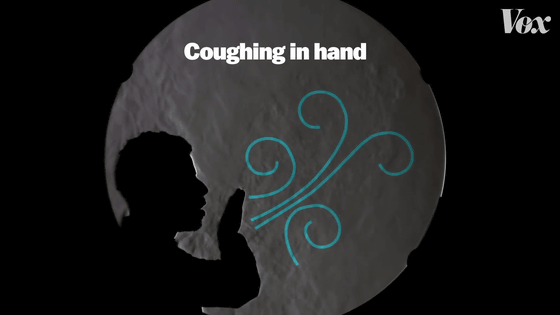
The following is a case of coughing with the elbow covering the mouth.
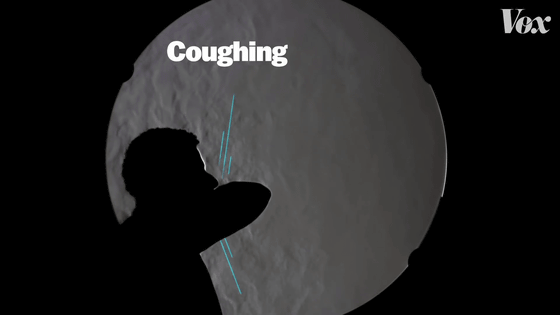
The following is a case of coughing with a Dust mask and a Surgical mask. You can see that a medical mask can suppress particles emitted from the mouth.
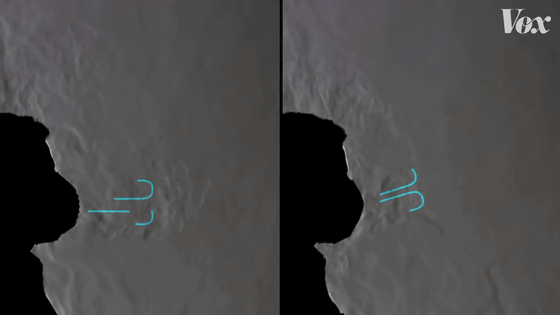
It is like this when comparing each side by side. It is clear that the distance of particles emitted from the mouth will be shorter when wearing a mask than when it is not wearing a mask.
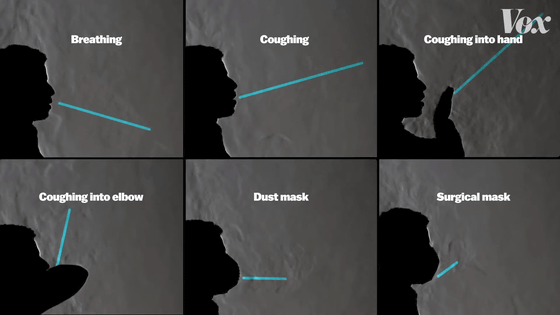
There is still controversy over 'whether you should always wear a mask when you go out', but there is also consensus among experts. That is 'if you are sick and must go out, wear a mask'. Wearing a mask can reduce the amount of germs released by the wearer.
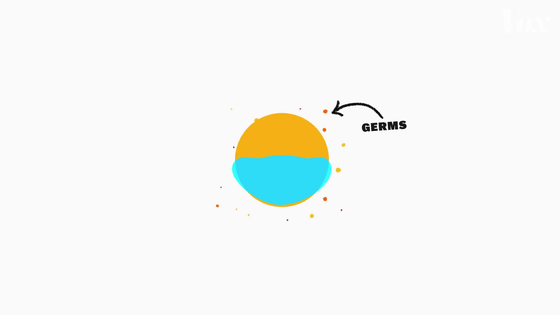
The controversial point about masks is that 'should healthy people wear them?'
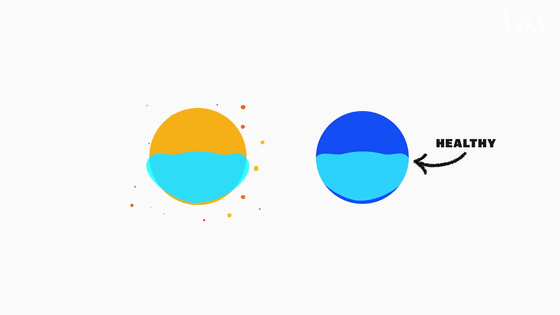
However, the difference between those who are infected with the new coronavirus and those who are not is more complex than one might imagine.

Even if infected with the new coronavirus, the
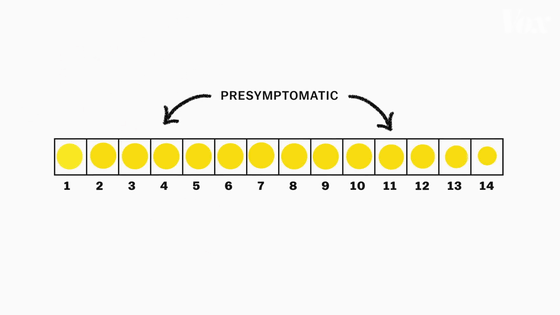
It is also known at this point that 25% of people infected with the new coronavirus are carriers of subclinical pathogens. Asymptomatic pathogen carriers do not show the condition of the new coronavirus, but because they have the new coronavirus in their body, they transfer the new coronavirus to others.
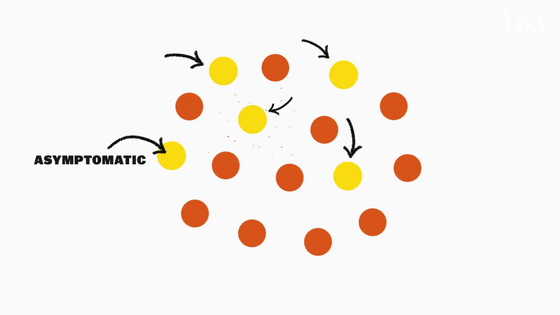
In other words, even if you think you are healthy, you may still be a subclinical pathogen carrier.
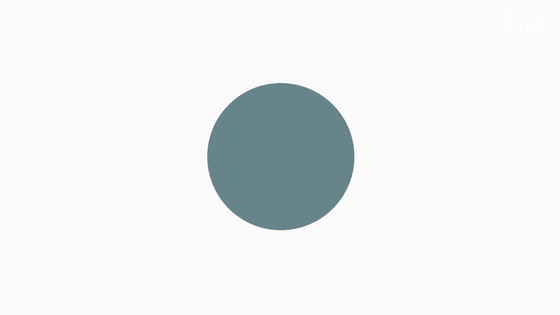
Shan Soe-Lin, a public health teacher at Yale University and Robert Hecht, an infectious disease expert at Yale University, said, `` It's not about your health, but about the health of people around you, like your family and others. If so, it is desirable that everyone wear masks. ”

On the other hand, it is also important to understand that there is no mask that can prevent infection 100%.

The mask is just one of the important protection measures. Other than masks, important protective measures are 'keeping social distance' and 'hand washing'. Although not all protection measures are 'completely prevent new coronavirus', it can reduce the probability of infection.
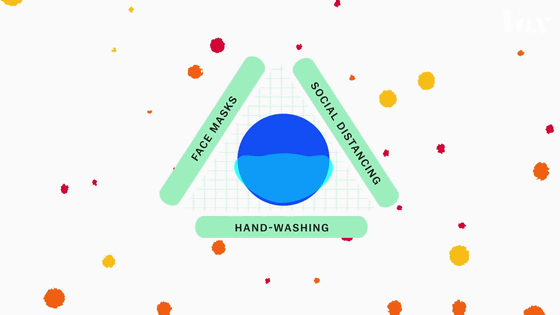
To understand why these protection measures are important, it is important to understand 'how the new coronavirus spreads from person to person.' The first method of infection with the new coronavirus is to 'touch the surface of a contaminated object and then touch your face with your hands.'
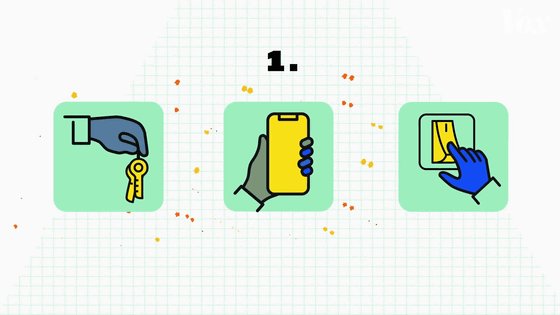
Hand washing is the most important step in preventing this type of infection, but wearing a mask also helps because it reduces the amount of contact with your face.
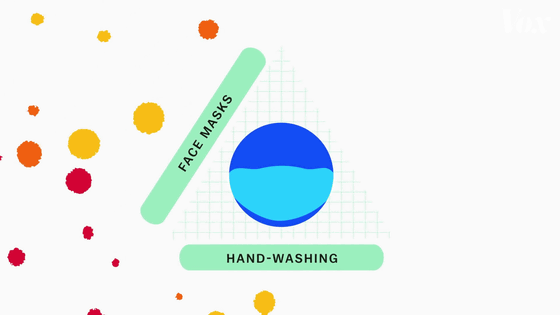
The second method of infection is to directly infect the particles emitted by the infected person.
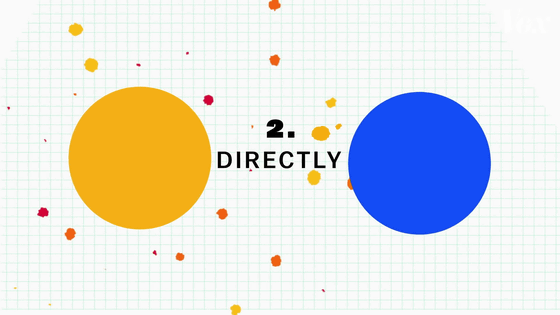
Infection through particles that come out of the mouth due to sneezing etc. also correspond to this infection method.
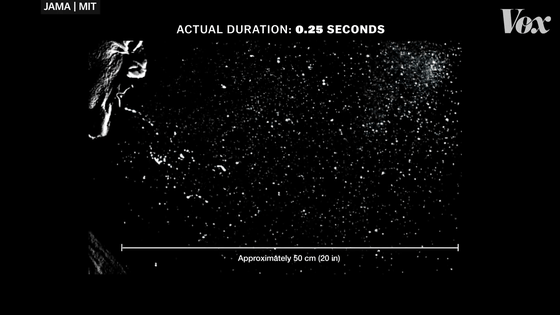
It is important to maintain a social distance to prevent this type of infection, but a mask that prevents large droplets out of the droplets emitted by sneezing is also important.
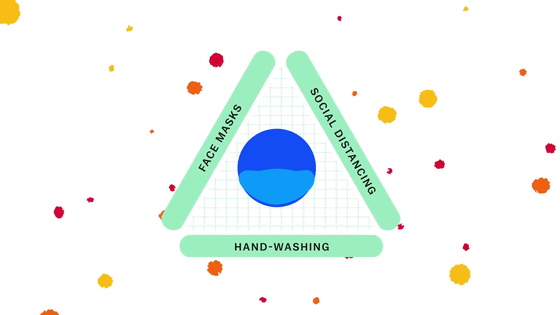
Masks become more important in occupations where social distance cannot be maintained.
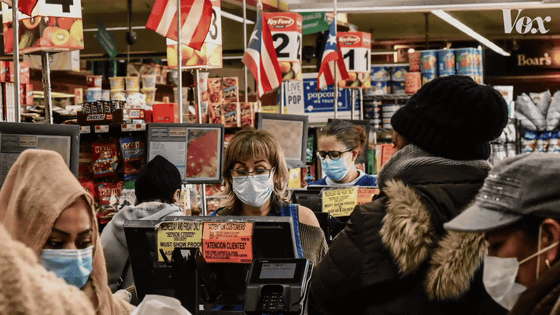
Of the droplets ejected from the mouth due to sneezing etc., small ones become
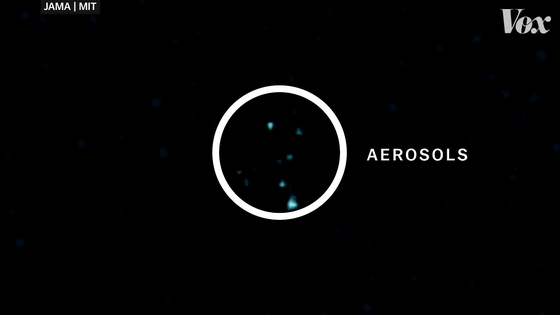
Masks that do not even penetrate aerosols are called '
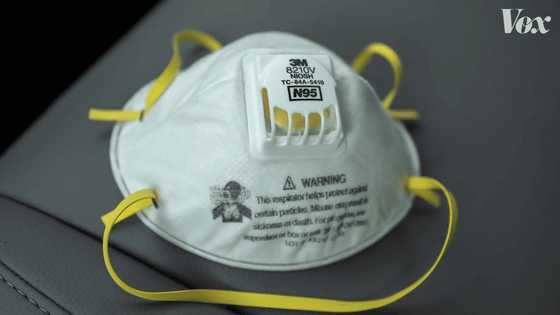
Many N95 masks can seal the nose and mouth without any gaps.
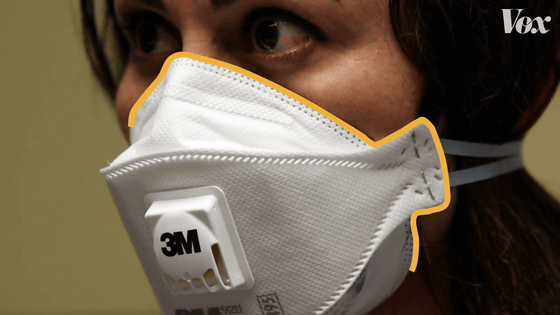
However, this N95 mask is missing in many medical institutions in the United States. The US Centers for Disease Control and Prevention (CDC) announced to the public that `` N95 masks and medical masks should not be worn '', that medical institutions lack N95 masks and medical masks Reason.
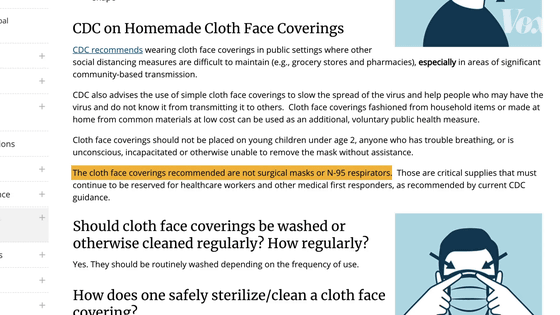
CDC
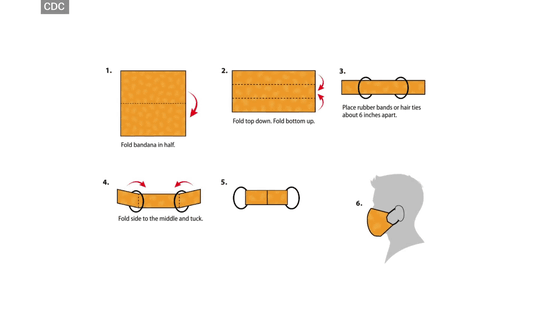
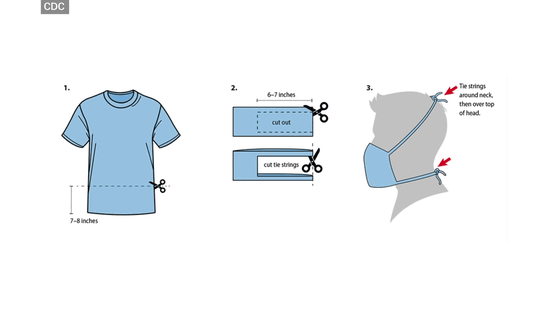
Masks help prevent COVID-19, but not 100%. And masks are more important to prevent 'transferring from you to others' than to prevent your infection.
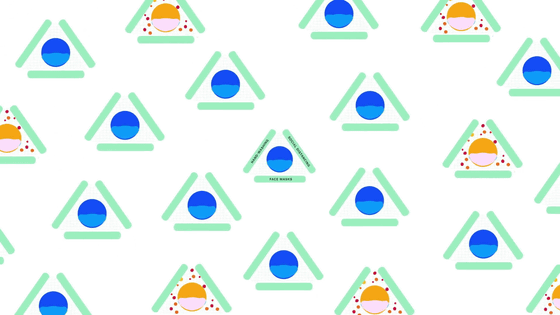
Related Posts:
in Video, Posted by darkhorse_log







